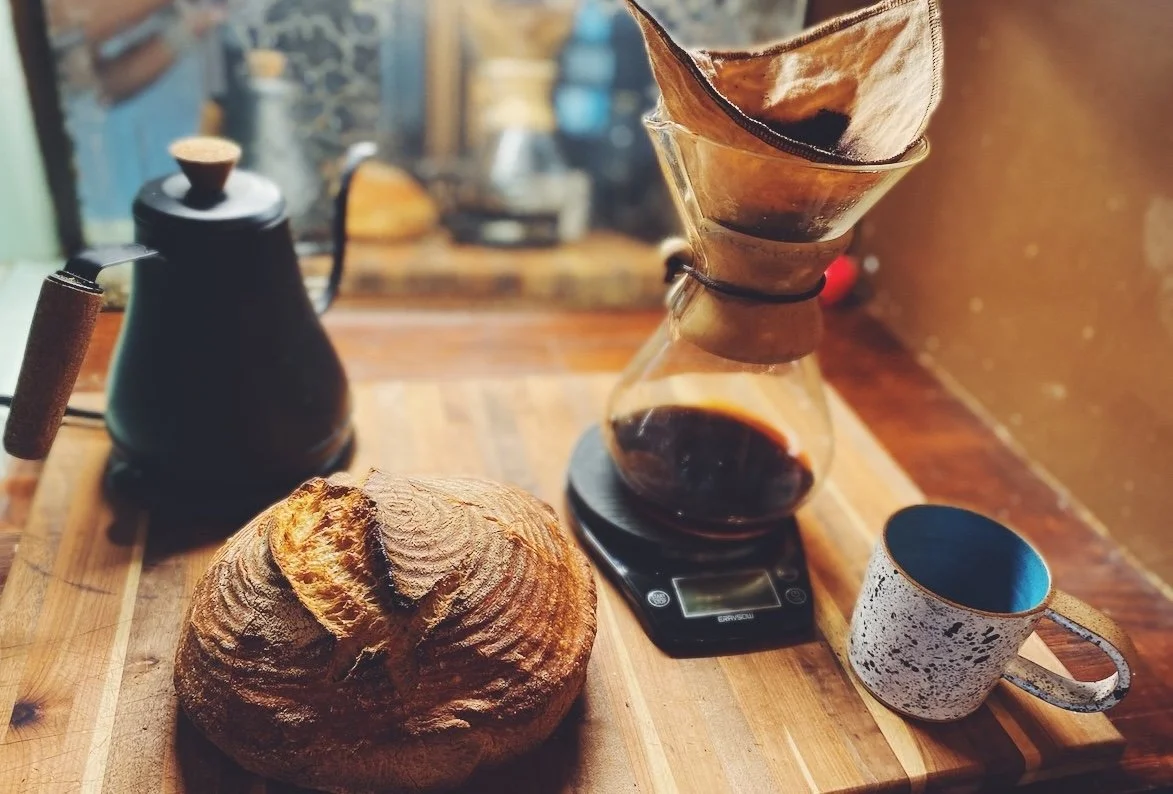What starts in the kitchen
What starts in the kitchen expands from the inside out.
The kitchen is a place of beginnings, of small alchemies that ripple outward into our lives. It is where we nourish our bodies, gather with loved ones, and make choices that echo far beyond our homes. Here lies a quiet but radical potential—for personal change, for community strength, for a gentler relationship with the world.
Right now, the world feels like a lot. Like—a lot a lot. Each news cycle brings a new reminder that the odds of a good and flourishing life seem stacked against us. Climate change, inequality, violence, exhaustion: it’s enough to make anyone feel that the problems are too vast, too entrenched, too much for any one person to touch.
And yet.
There is no change without individuals. Every great turning in history, every arc bent toward justice, has been carried forward by people—ordinary, flawed, wonderful, persistent people—making choices and taking actions. When enough of us act, what begins in one home, one family, one kitchen, becomes a movement.
But where to begin?
Perhaps where beginnings have often lived: at home. In the quiet of a morning routine. In the gathering of friends around a table. In the seemingly mundane habits of our daily lives. Our homes are seedbeds of possibility. What we choose and how we choose it sends out signals—ripples that move into the wider current of culture.
What we watch.
What we eat.
Who we listen to, and how we listen.
What we buy, and what we refuse to buy.
Besides our everpresent screens, no room in the home bears more of this potential than the kitchen. It is a rare and precious noncommercial space where we can exercise imagination, creativity, and care. Here, small shifts can reverberate outward.
Small shifts with wide-reaching implications
In both practical and soul-satisfying ways, your time in the kitchen can build a strong foundation for self care that becomes community care.
The practical
Nourish yourself. Nourish the planet.
As pleasurable and gratifying as the kitchen can be, it’s also a place of practical changes that make a real difference on bodies, minds, and the environment at large.
Few individual choices can have as profound an impact as eating more plants. From the enormous health benefits to the money-saving impact on your budget to the clear environmental benefits—plants are magic in the kitchen. And they don’t even have to be fresh from the vine—frozen veggies are great and won’t go bad if you don’t get to them right away.
Reduce waste.
Every scrap we toss into the trash bin tells a story. From food waste to plastic, foam and paper packaging, what we toss strains the ecosystem and our budgets alike. Reducing waste is both environmental care and an act of frugality. It is a refusal to let what nourishes us become what burdens the earth.
The transformational
Resist convenience culture.
We are told endlessly that our energy is scarce, that we have none left to give after work, that convenience is salvation. And yet the so-called conveniences—packaged meals, endless scrolling—often deplete rather than replenish us. They leave us dull, not nourished.
Even on the most tired evenings, a quick, simple and inexpensive meal—beans simmered with greens, garlicky pasta—even a crisp slice of toast topped with a soft egg—offers more pleasure than convenience ever could. It anchors us back to ourselves, back to what is real and sustaining.
Slow down & engage the senses.
The kitchen invites us to resist the relentless drumbeat of go go go without numbing and dulling ourselves. To chop slowly, to stir thoughtfully, to inhale the scents and engage the textures of food and drink. Time in the kitchen is not wasted—it is restored. To cook is to come back into our bodies, into the rhythms of the senses. It is an act of presence in a culture of distraction.
The communal
Strengthen bonds.
A kitchen is never just private. It is a place of sharing. Every culture knows this: food is love. Sharing food or meals with friends, neighbors, even strangers builds bridges of care.
History is full of moments when the act of gathering around a table ignited something larger. Abolitionist meetings, civil rights organizing, suffragist strategy sessions—many of these began not in halls of power but in kitchens. The kitchen has always been both hearth and headquarters.
What starts in the kitchen…
What if we collectively slowed down and found ourselves more present. What if we resisted convenience and reclaimed true pleasure. What if we shared more meals or gathered for tea and coffee together, strengthening our circles of care?
Would we become healthier, steadier, more rooted? Would we carry less in debt, or be less depleted, or less distracted? Would we be more connected—to our bodies, our families, our communities?
Of course, a shift in our homes cannot singlehandedly reverse climate change, end war, or dismantle oppression—especially if these shifts stay hidden in our private spaces. No single act or single person can be the full solution. Movements are mosaics of countless small decisions, multiplied by countless hands.
What starts in the kitchen fortifies us to face a world in need. It nourishes us so that we can nourish others. It teaches us attention and care until attention and care become our way of life.
And that is how change begins—quietly, in kitchens, in homes, in the dailiness of living. From the inside out.
